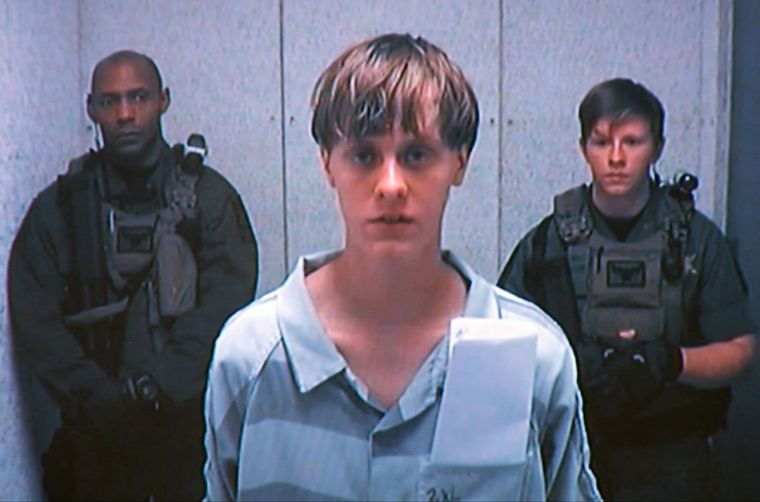The Christian Response To Dylann Roof's Death Sentence

Dylann Roof has been sentenced to death for the murder of nine churchgoers in Charleston, which raises signficant questions about how Christians should respond. The horrifying nature of the crime will heighten the rhetoric and increase the divide between those of differing opinions. But in seeking a constructive, rather than a reactionary, approach, it is helpful to look below the surface events of shooting, judgment and impending death.
The case can be seen as an extreme manifestation of principles that are at work in every level of society.
The first area to look at is sin, which does not happen in isolation. This situation is the product of strands and strains of sin that have worked through the human race since human beings first walked the earth. These have affected the cultures and sub-cultures of which Roof is a part, and these in turn have been formative of who he is and what he has done.
The result that was embodied in his actions on June 17, 2015 reveals the fundamentally dehumanising nature of sin and its destructive influence – on the lives of those killed, their families and their community. God's intention for humanity was that we would live in relationship with God and one another, in relationships characterised by love, purity, goodness and joy. Any sin creates fractures in this whole – in self, in our relationship with God, in our relationship with neighbour and in the generations that succeed. Given the length of time humans have lived on this earth, the miracle is that anything holds together in any good way rather than that terrible things occur.
With the complex nature of individuals and societies, it is difficult to discern what in ourselves and in others is tarnished by sin and to what extent. In this case, the outworking of sin is clear, but we should be challenged by the fact that Roof continues to view his acts as correct. In this aspect, he has lost a core element of his humanity. The challenge then comes to us, albeit perhaps on a much lower level: what is there in our own belief and practice that we assume is 'right' that may be infected to some degree by the cancerous nature of sin?
What does this mean for our response? Because none of us is without sin, should we refrain from throwing any stones at all? The actions of the state in seeking the death penalty show a desire for justice. Again, however, looking underneath the surface at core principles of humanity can guide our thoughts.
First and foremost, we should mirror our God in being merciful and extending grace. Mercy is the withholding of the full punishment that a sin deserves. The ultimate punishment for sin is in God's hands, not ours, and in his time he will bring this about. Grace is the work of spirit in restoration, both the divine Spirit and the human spirit. Where we see sins around us, we should seek to offer grace. In a case such as this, we should recognise that this not only involves the one responsible for the sin, but also those affected by the sin. On both counts, grace would not imply simple forgiveness for the act committed, but a need for discipline to protect and comfort those who have been hurt and to challenge the culprit to see the error of his ways.
If any of us were to receive due punishment for who we are and what we do, we would not be long in this world. The miracle is that, since the first sin that should have cut off all creation from our holy God, grace has been extended both to hold all things together and to seek restoration.
Rev Dr Calvin Samuel is Principal of the London School of Theology and a Methodist minister. He has a MBA from Manchester Business School and a PhD from King's College London and is married to Ramona.











